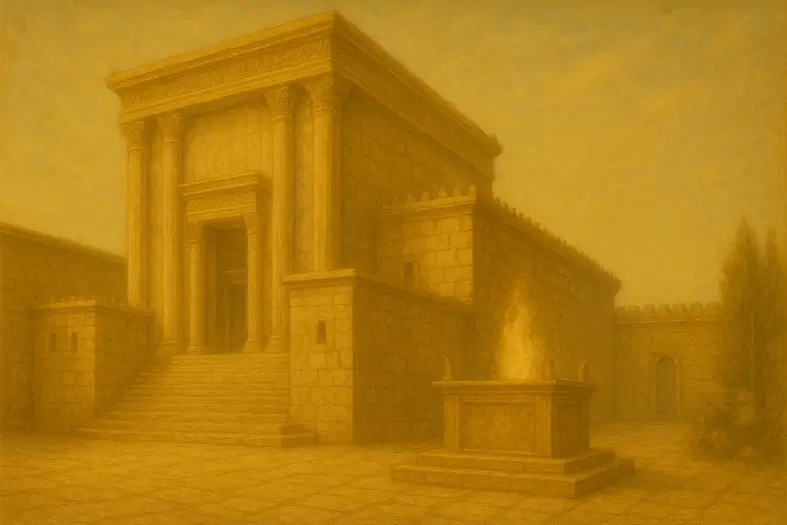


It is forbidden to place oil on the minchah of a sinner.
This mitzvah prohibits adding oil to the meal offerings that are brought as sin offerings. Unlike voluntary minchot, which include oil and frankincense as symbols of joy and favor, the minchah of a sinner must be offered plainly, without adornment.
Rambam explains that this lack of oil reflects the somber nature of atonement — the sinner is not in a position to display celebration or abundance. Sefer HaChinuch notes that oil represents blessing and happiness; to add it to a sin offering would contradict the offering’s purpose of humility and remorse. The Talmud observes that omitting oil and frankincense prevents the sinner’s korban from resembling the voluntary offerings of the righteous, thereby reinforcing the sincerity of teshuvah. Rashi underscores that the absence of oil shows the seriousness of sin and the need for repentance. Ramban interprets it as a lesson in spiritual honesty: external beautification must not cover over transgression.
Commentary & Classical Explanation:


Represents the concept of spiritual intentionality, purity, and sanctity—set apart for a higher purpose.
Concerns the Beit HaMikdash, korbanot (offerings), and priestly service.
Practices that cultivate inner modesty and self-awareness. These mitzvot teach us to step back from ego, create space for others, and recognize our place before G-d.
Signifies awe and reverence toward Hashem—living with awareness of His greatness and presence.
Mitzvot that define and deepen the relationship between a person and their Creator. These include commandments involving belief, prayer, Shabbat, festivals, sacrifices, and personal holiness — expressions of devotion rooted in divine connection.

Dive into mitzvos, prayer, and Torah study—each section curated to help you learn, reflect, and live with intention. New insights are added regularly, creating an evolving space for spiritual growth.

Explore the 613 mitzvos and uncover the meaning behind each one. Discover practical ways to integrate them into your daily life with insights, sources, and guided reflection.

Learn the structure, depth, and spiritual intent behind Jewish prayer. Dive into morning blessings, Shema, Amidah, and more—with tools to enrich your daily connection.

Each week’s parsha offers timeless wisdom and modern relevance. Explore summaries, key themes, and mitzvah connections to deepen your understanding of the Torah cycle.